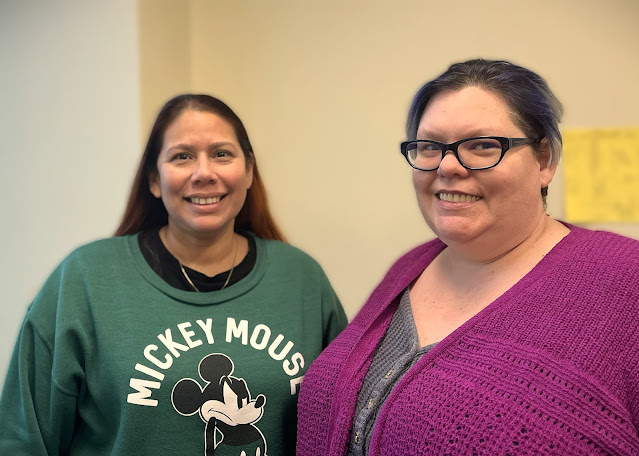Caseworker Mentors Strengthen Team FCCS Talent
Kristy Shannon recalls encouraging a new caseworker to always take some deep breaths before entering a family’s home, so that the caseworker would feel calm and confident. She knew how easy it can be for new caseworkers to get flustered and feel overwhelmed when they first begin working with Franklin County Children Services.
Fortunately, new caseworkers at FCCS are paired with mentors like Ms. Shannon who support and help them get acclimated to working with families. Caseworker mentors are one of the ways the agency strives to recruit, develop, and retain the best talent by making new hires feel safe, valued, and prepared to do their jobs well.
“We know that the work we do is very hard and the families we work with are very complex,” said Vincent Owens, Ms. Shannon’s supervisor. “Having some support, an extra pair of eyes, and someone there to hold your hand a bit is important to new caseworkers.”
“Often, they come in with a lot of textbook knowledge, but little practical experience. Having an experienced staff member there to help them leads to better decision-making and better outcomes for families.”
Mentors work with new hires until they are proficient in doing casework, accompanying them on visits with families, helping with paperwork, assisting them in locating resources, and answering lots of questions.
With seven years of experience at FCCS, Ms. Shannon is eager and well-equipped to “teach newbies the ropes” and ensure families have the resources they need. She currently works with Maria Angelica Edwards, a new hire on the Intake, Assessment, and Investigations team.
Ms. Edwards admits feeling nervous when she first started at the agency and is grateful for Ms. Shannon’s support. “Our relationship is amazing. I was stressed for a while, but Kristy helped me understand my job and now I know this is what I want to do.”
Ms. Shannon is happy to be part of Team FCCS. “I love the people I work with,” she said. “Everybody is really supportive, and it feels like family.”
She also values what the agency brings to families: “The work caseworkers do is super important. Often, working with us is the first way families have access to resources. I like being able to help families come through the worst times, become stronger, and better their situations.”
Ms. Shannon feels like casework teams are strong advocates for families. She recalls a time when she and a new caseworker helped a family whose teen was experience suicidal ideation.
“The family didn’t know what to do,” she said. “We gave them resources and were able to make them feel prepared to handle a crisis. When we left, they felt comfortable with how to proceed.”




Comments
Post a Comment